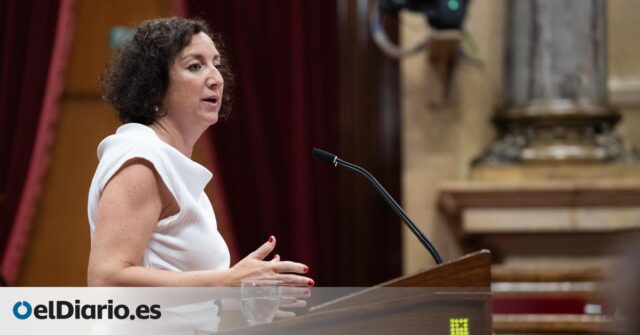The government received 900 statements about loans from the Català de Finses (ICF) Institute so that young people under 35 can pay the entrance to their first floor. The deadline was opened on June 30, just three days ago. The Minister of Economics Alisia Romero said that more than 4,100 young people were interested in loans. Of these, ICF studies 230, and some are even authorized by payment, so the beneficiaries can already start the process of buying a house.
Romero did not give an indicator of how many loans were already approved, but the government transferred the government is that the average amount of the house that young applicants want to buy is 217,000 euros and that the average amount of the requested entrance is 36,500 euros.
The minister celebrated Crynons and found the “success” of the initiative. “We are satisfied with the answer that shows that the product was necessity,” he said.
Loans are intended for young people under 35 years old and make up a maximum of 50,000 euros, amount to 0% and can be returned up to five years after the payment of a mortgage of housing. Cross emancipation loans are limited by the income of a maximum of 80 963 annual brut, in the case of a person and up to 83,467 euros, in case the house is bought by two people.
One of the conditions for access to this loan is that the floors purchased with this formula will be forever made from official protection.
This means that if the house wanted to sell, the sale price will be limited by the amount with which it was purchased by adding the inflation and the cost of the reforms that were carried out to guarantee that this person restores investments and that the house continues to be affordable.
Thus, Generalitat seeks to facilitate the purchase of its first floor, helping them with the entrance and at the same time creating an official housing park in the catalun.
The Catalan Institute of Finance (ICF), the Generalitat State Financial Enterprise, will conceal up to 20% of the value of the property with the top of these 50,000 euros, and the remaining 80% will be provided with banking
Generalization until 2029 will allocate a total of 500 million euros on this credit line at a rate of 100 million a year. Resources will be provided by the Catalonia Housing Agency, while ICF will manage loans.









